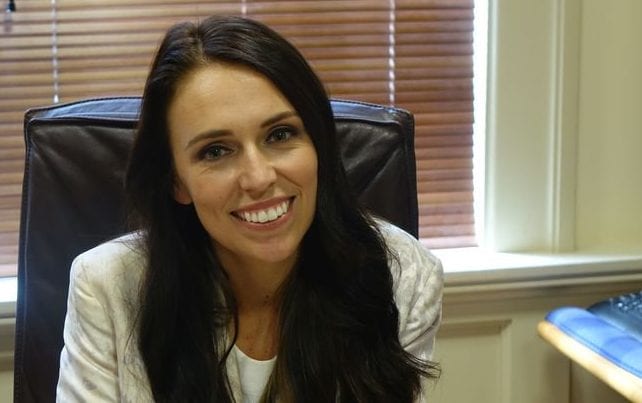Jacinda Ardern will become the next prime minister of New Zealand, by forming a minority government with the New Zealand First party.
And she finally brings a female face to the growing list of world leaders who’re in their thirties.
The news comes after weeks of negotiating with the NZ First party, with the minority party’s leader Winston Peters announcing he would back Ardern’s Labour party during a television event this afternoon.
Jacinda is the country’s third female PM and, at 37, its second youngest PM in NZ history (the youngest, at 37 and 40 days, started his term in the mid 1800s).
Ardern’s proven herself to be warm, engaging, and with the ‘human face’ Peters said he was looking for. Some say she’s got the “Trudeau factor”, being young, photogenic, and popular with the youth bloc.
Back in August, former NZ PM Helen Clark even made the Justin Trudeau comparison, suggesting the internationally unknown Ardern could be part of a growing trend of young leaders.
“We have seen Emmanuel Macron come out of nowhere at 39 to be the president of France, we have seen Justin Trudeau cruise to the top and be so successful, so these are very different times.”
Indeed, Ardern becomes the twelfth current head-of-state in their thirties. The youngest is Austria’s Sebastian Kurz, at just 31. Ardern’s the only female on the thirty-something power list.
Unfortunately for Ardern, it’s unlikely to be an easy term in government. Indeed, the support of the NZ First party will come at a cost, starting with Peters becoming deputy prime minister. His party is also expected to get four cabinet positions, and a very good say on some of their key policy initiatives — which include cuts to migration, and a crackdown on foreign ownership of land.
Peters is 72, as the ABC is reporting today, he may very well be thinking about his legacy and pushing change in NZ. He’s also indicated he wants softer capitalism: “Capitalism must resume a human face,” he said yesterday.
Just how Ardern will work with Peters remains to be seen.
Still, this is a massive victory for Ardern, who only became leader of the Labour party on August 1, just months prior to the election. At the time, Labour was headed for a massive defeat. Ardern’s managed to turn things around in an impressively short amount of time. The fact she could do so, proves just how “human” she really is.
.@mojtechy #AskJacinda pic.twitter.com/phINlvEbip
— Jacinda Ardern (@jacindaardern) September 22, 2017
Ardern can expect to face sexism, especially leading a minority government (Julia Gillard’s time as PM of Australia’s a good case in point). But Ardern’s proven she’s well equipped to deal with whatever comes her way. When she was asked about her “baby plans” within days of taking the leadership of the Labour party, her response was swift and won international headlines: “It is totally unacceptable in 2017 to say that women should have to answer that question in the workplace,” she said.
Ardern said in a statement that her party would aspire to build a fairer country.
“This is an exciting day. We aspire to be a government for all New Zealanders and one that will seize the opportunity to build a fairer, better New Zealand,” she said.
“We will work hard to ensure New Zealand is once again a world leader, a country we can all be proud of. We said we could do this, we will do this.”
Peters said his decision to support the Labour party was made for the “New Zealand people” and that it would produce “change” rather than merely modifying the “status quo” — as his support to the Bill English led National party would have done.
He said that capitalism has not been “the friend but the foe” for too many New Zealanders.
“We believe capitalism must regain its human face, and that conviction deeply influenced our decision.”
“We had a choice for a modified status quo or for change. That’s why in the end we chose a coalition government with NZ First and the Labour party.”
He added that Ardern had shown her talent during the election campaign.
Ardern also apparently only learnt that her party had been chosen to lead by NZ First at the time of the press conference.
Meanwhile, how will Ardern work with Australia?
During the election, Australian Foreign Minister Julie Bishop attacked the NZ Labour party after it raised questions about the citizenship of Barnaby Joyce. Bishop said at the time that she’d “find it very hard to build trust” with the Labour party should it win government.
Bishop told Australian media overnight that she looks forward to working with the new NZ government.
Congratulations Jacinda Ardern.


